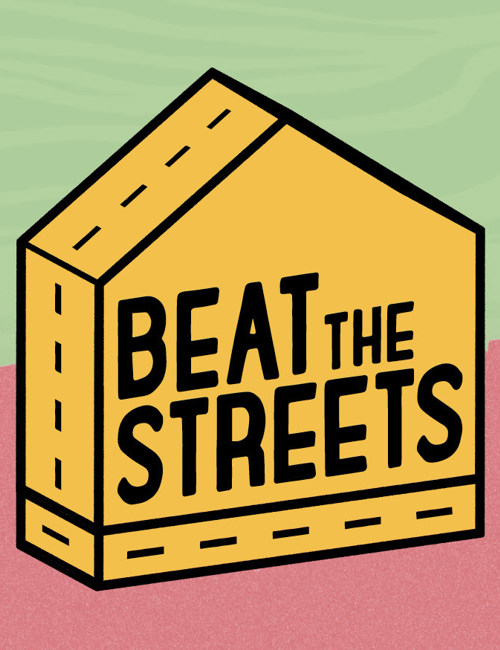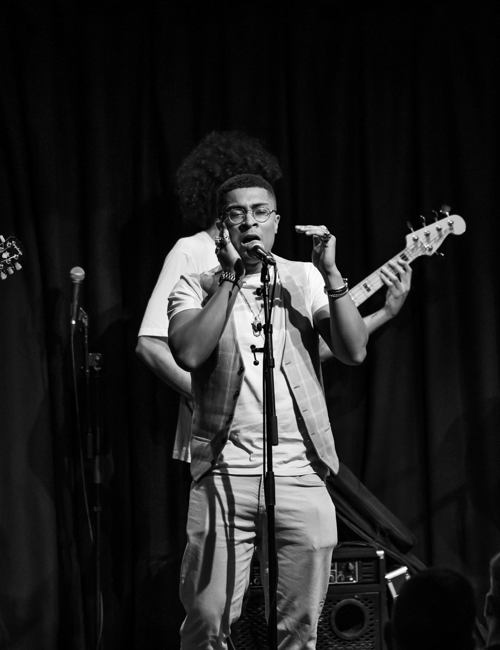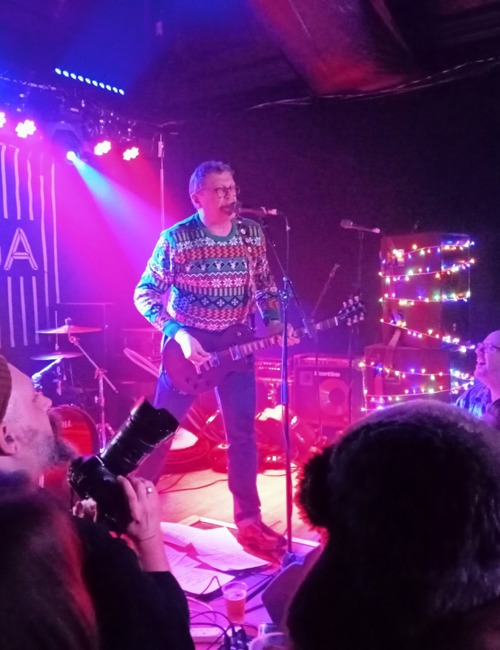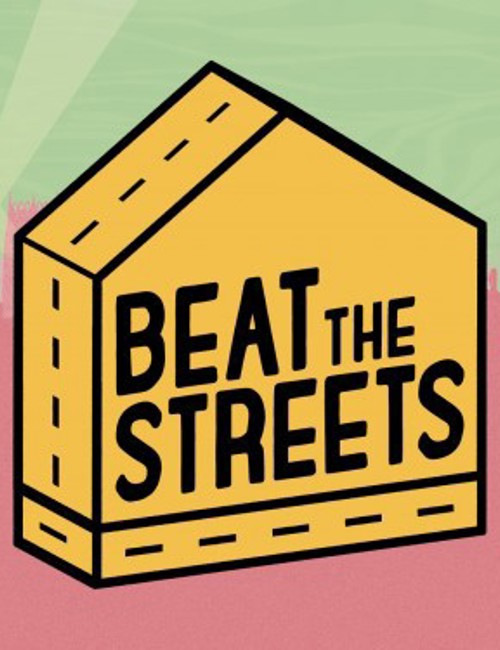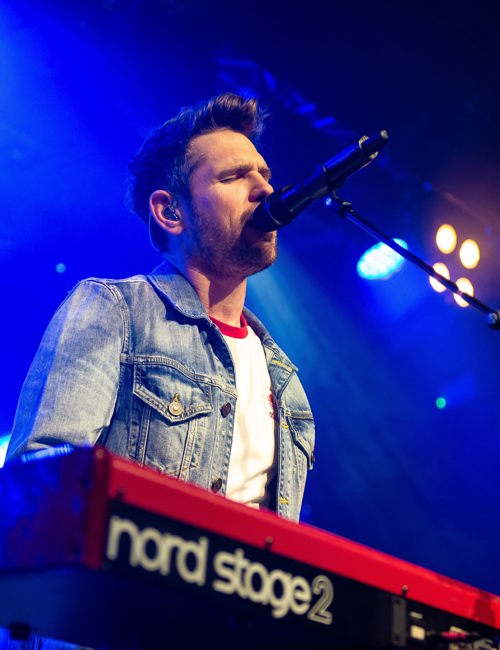Ronika has been pumping out banging electro-pop for years. As she releases new album, Lose Your Cool, the Notts-raised songstress spoke to us from her London home, which we can only assume is a huge mirrorball-ed space palace in the capital’s trendiest ends…

How did you start out making music?
I started getting into electronic music and going to clubs in Notts with a fake ID when I was fourteen. Getting into dance music and hip hop inspired me to want to get into the production and recording/engineering side of music. I signed up for a Friday-night course on studio skills at a recording studio when I was fourteen, then after that I went to Trev’s studio (CRS) in St Ann’s, which was dead inspiring cos all this amazing Notts hip hop was coming out of there. By the time I’d finished school, I was dead set on the music path and went to Confetti to study production and engineering, which was when I really started making music.
Your new LP, Lose My Cool, was released in January – can you tell us a little about how it came together?
I wanted to make a record that was inspired by soulful r‘n’b jams and grooves – old classics as well as current moods, and all linked together with solid pop hooks. I locked myself up in my studio for a year and got busy with it; I wrote and produced half of it on my own and the other half I collaborated with some dope producers. Some were friends, like L-Vis 1990, who I met in New York, and some who I found on SoundCloud, like Naji and Hero.
It sounds like it’s infused with a wider variety of styles than the electro-disco-pop of your last album, Selectadisc – what influenced your writing and production?
I had records by Jam and Lewis, and Janet Jackson, through to TLC and Toni Braxton, to Pharrell and Justin Timberlake, up to Kaytranada and Ariana Grande all on rotation for inspiration. I’d also borrowed a piano from a friend so was doing loads of gospel and r‘n’b piano tutorials to help fuel the writing. Then another friend lent me a Yamaha DX7 synth which inspired some of the more eighties r‘n’b-sounding jams like Late Night Radio, which features Notts-based rapper Swisha. He was hooked up with me by my long-term friend and collaborator on Selectadisc, Joe Buhdha.
Does that genre-bending come from your love of record shops in your formative years?
I’ve always been a digging music obsessive since I was a teenager, when I would plunder Selectadisc and Rob’s Records, and I’ve probably been heavily into most kinds of music at some point. Making music for me is always about trying to put my spin on all the influences I’ve consumed over the years, depending on whatever I’m feeling most inspired by at the time.
If you were forced into a time machine, where would you go?
I’d probably go forward to one week in the future just to get next week’s food shop done in advance. Otherwise, I reckon I’d flash forward 100 years to see what kind of music is soundtracking the alien space wars of the future, and also see if the Rolling Stones are still going.
You put your music out on your own record label, RecordShop. Does being your own label boss, as well as writer and producer, make the process easier and give you the ultimate say over the final product?
It means I can hire myself and fire myself whenever I want, which I do on a daily basis. Yeah, it’s great to be able to make whatever music I want without any commercial pressures. The downside is I have to fund everything myself, so I only have tiny budgets to promote my music, which makes it difficult to reach many people. I can’t afford adverts on the side of buses, so I just have to sit on the bus all day and hold my vinyl up in the window with my best winning smile.
I can’t afford adverts on the side of buses, so I just have to sit on the bus all day and hold my vinyl up in the window with my best winning smile.
Is it still, in your experience, difficult for female artists to get a foot in in a traditionally male-dominated music industry?
Things are definitely changing, more so in electronic and dance music where there’s lots more female producers and DJs now, but in pop music it’s the same old male-dominated arena in terms of those roles, which is part of the reason I do this independently.
Do you think that, with the likes of Solange and Beyonce doing well, there’s a good representation of quality female pop around, and how do you fit into that?
Women are ruling pop right now and killing it. I’ve never really seen myself as a popstar in comparison to those kind of legends, more a pop-music lover who is making music for like-minded pop lovers. Although there is some amazing pop music around, there’s a lot of crap, formulaic chart nonsense too, so I’m just trying to make the kind of stuff I’d want to listen to and mix it up with some less mainstream influences.
Does your background as a sound engineer mean you have a greater appreciation of the technical side of things?
It was really important for me to be just as fluent in the tech side of things as with the musical side, so I spent many years studying, working as a sound engineer, locked away in my studio. That side of the process is just as interesting and exciting to me as the writing and performing.
You unfortunately suffered from autoimmune disease for a long time, which must have been extremely difficult – how did you cope during that time?
I coped because my friends and family were there for me and picked me up every time I hit the bottom, but also having the focus of my music gave me hope and something to work towards. Even when I was repeatedly stuck in bed for months at a time, I could still keep working on my laptop which totally saved my sanity. That and tramadol.
You saw a couple of scary incidents while in Nottingham. Did that have some bearing on moving to London?
Well, there were shootings, stabbings, gang raids and arson attempts that all happened to me and my neighbours, not to mention the dead body found in a wheelie bin a few metres from my old house. But, at the same time, there were the amazing kids on my street – one is now my godson and is moving to the US to do basketball at university, who I’m dead proud of. I lived in Sneinton for a long time and I loved the community, but it was also pretty oppressive in many ways. I moved to Sherwood for a bit after that. Moving to London – and before that, Barcelona – was more just about wanting to have a change of scenery and some fresh inspiration after living in the same city all my life.
What do you miss about Nottingham? And what do you really not miss?
I miss bombing around Broadmarsh on my mobility scooter. I miss slipping a sneaky cola bottle in my mouth from the pic’n’mix section of Wilkos. I miss winking at the old men as I walk round Woodthorpe Park. I don’t miss Goose Fair, it always brings back the trauma of losing my mum there when I was a kid. Still haven’t found her yet.
Who’s on your dream after-party guestlist?
F Scott Fitzgerald, Charlie Chaplin, Prince, Lauryn Hill, Tina Fey, Frank Zappa and Peter Cook, and I hope it’s as awkward as possible.
Ronika’s second album, Lose My Cool, is out now via RecordShop.
Ronika website
We have a favour to ask
LeftLion is Nottingham’s meeting point for information about what’s going on in our city, from the established organisations to the grassroots. We want to keep what we do free to all to access, but increasingly we are relying on revenue from our readers to continue. Can you spare a few quid each month to support us?
